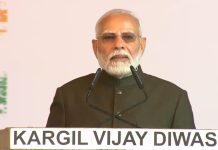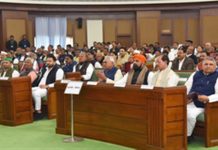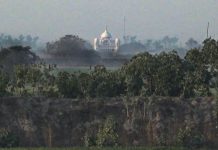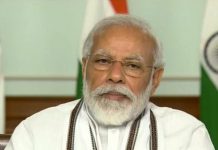
Raj Kanwar, a prolific journalist and author, died in Dehradun on October 31 at the age of 92. The grand soul is no more but every journalist who wishes to be called a journalist has a lot to learn from the man who was actively writing till the last days of his life for leading publications like Garhwal Post, The Tribune, Punjab Government’s publication “Advance”, Tehelka and some other newspapers. He was commissioned to write the history of the ONGC which was published as ‘Upstream India’ and released to mark the Golden Jubilee of ONGC. Subsequently, he wrote “ONGC-The Untold Story”. His book, titled “Once Upon a Time in Doon” edited by Ruskin Bond, was an anthology about Dehradun with a lot of nostalgia. He was recently writing a book, titled “Writer of Obituaries”.
Celebrated journalist and author, Anil Maheshwari philosophically questioned as to who was qualified to write an obituary of the one who himself was a “Writer of Obituaries” and had encyclopaedic knowledge about Dehradun. Incidentally, Maheshwari had written about Raj Kanwar in his memoir ” Instant History: A Memoir” published by Bloomsbury.
It goes on like this: Way back in 1953, Raj Kanwar was a rookie sub-editor on the staff of The Indian Express, Delhi. That paper had just started its Delhi edition from a dilapidated building in the Mori Gate area in the walled city.
Kanwar was then a regular visitor to the libraries and reading rooms of both the United States Information Services (USIS) and the British Council that were located on Curzon Road, now Kasturba Gandhi Marg, New Delhi. One day he found out that Sir Arnold J. Toynbee – the world-famous historian and author of the multi-volume “A Study of History” would shortly be visiting Delhi and would stay with Sir Girija Shankar Bajpai, the then secretary-general in the Ministry of External Affairs. Kanwar decided to interview Toynbee, come what may. For the next three consecutive days, he studied laboriously in the USIS and British Council libraries to put together whatever material he could find on Toynbee.
Current and old issues of TIME Magazine came in handy as they had substantial
inputs on Toynbee. He also consulted other American and British newspapers and
made his notes.
Knowing well that Toynbee would not have enough time for a detailed interview, Kanwar prepared a list of questions to be asked and wrote possible answers as well, based on the published information. Thus he had a full text of an expected conversation with Toynbee with questions and answers ready for publication even before the interview could be sought.
The following day, Kanwar cycled to the residence of Sir Girija on Teen Murti Lane to
interview the historian without any appointment. Those days there was scant security, and one could walk into a VIP residence. There were nearly half a dozen chairs in the verandah, and Kanwar sat on one. In a while, a peon appeared, and Kanwar told him that he wanted to see Professor Toynbee. The peon, as was his won’t, haughtily said that the Sir had no time as he was just about to leave for the airport to catch a flight.
Carrying a briefcase, Toynbee appeared briefly. Kanwar wished him good morning and introduced himself, saying that he would like to interview him. Toynbee politely said that he was on his way to the airport and had no time for an interview. Kanwar looked at him, beseechingly and pleaded for just five minutes. Before he could say ‘No’, Kanwar handed him a bunch of handwritten papers which had both the questions and the answers. A smile appeared on Toynbee’s face as he read those papers. “These would have been my exact answers to your questions. Where did you get them from?” “Sir, I picked these from the published material at the USIS and British Council Libraries. I would appreciate it if you would kindly approve these,” Kanwar answered. Toynbee looked admiringly at the young reporter and signed the handwritten papers. “Yes young man, go ahead and publish this interview as mine.”
The same day Kanwar typed out the interview and handed it to his resident editor who read the story and congratulated Kanwar. It was the first lead front page story in
Sunday Standard (Sunday edition of The Indian Express) the following day. Kanwar
earned the admiration and envy of his senior colleagues.
Chief Minister Pushkar Singh Dhami and many senior journalists, authors, people from all walks of life have condoled the passing away of Kanwar. Indeed, Raj Kanwar had a full innings and has left us a wealth of fond memories as he could build an instant rapport with everyone whom he remembered by name. Surely, one feels, he is still around.













